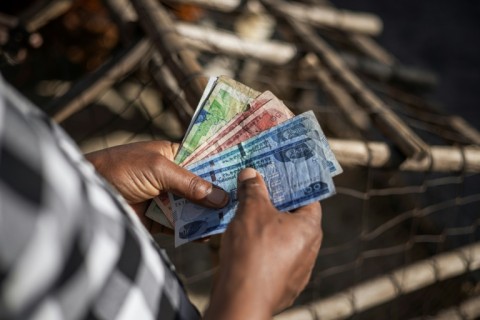[
Ethiopia’s Bold Economic Reforms Eases Foreign Exchange Curbs
Ethiopia, the second most populous country in Africa, is making significant strides towards economic reform as it eases foreign exchange curbs in an effort to stabilize its struggling economy. The move comes as the country faces mounting financial challenges aggravated by armed conflicts, the COVID-19 pandemic, and climate shocks. To address these issues, Ethiopia has sought a multibillion-dollar bailout, with the International Monetary Fund (IMF) recently approving a $3.4-billion loan programme to support the country’s reform efforts.
The historic decision by the National Bank of Ethiopia to allow a competitive market-based determination of the exchange rate marks a pivotal moment in the country’s economic landscape. The value of the local currency, the birr, has plunged by approximately 30 percent following the announcement, reflecting the impact of these reforms. The central bank stated that the new policy aims to address long-standing distortions within Ethiopia’s economy, ultimately paving the way for sustainable growth and development.
Negotiations for the IMF loan have been arduous, with the international lending institution requiring significant reforms, including floating the currency, as a condition for financial assistance. The IMF’s approval of the loan is seen as a vote of confidence in Ethiopia’s commitment to implementing transformative changes to its state-controlled economy. IMF Managing Director Kristalina Georgieva commended Ethiopia for its strong dedication to reform, highlighting the significance of this milestone for the country.
The shift towards a market-based exchange rate regime allows banks to freely buy and sell foreign currencies, enabling a more transparent and efficient forex market. The Commercial Bank of Ethiopia, a state-owned entity, has already seen the US dollar exchange rate skyrocket to 74.73 birr, compared to 57.48 birr just days before. This adjustment reflects the birr’s true value, which has long been suppressed by the previous official exchange rate set by the NBE.
With a staggering external debt of $28-billion and inflation hovering around 20 percent, Ethiopia faces significant economic challenges that require urgent attention. By enacting bold reforms and liberalizing its foreign exchange market, Ethiopia is taking decisive steps towards economic stability and growth. As the country navigates these changes, the world watches with cautious optimism, hopeful for a brighter future for Ethiopia and its people.
